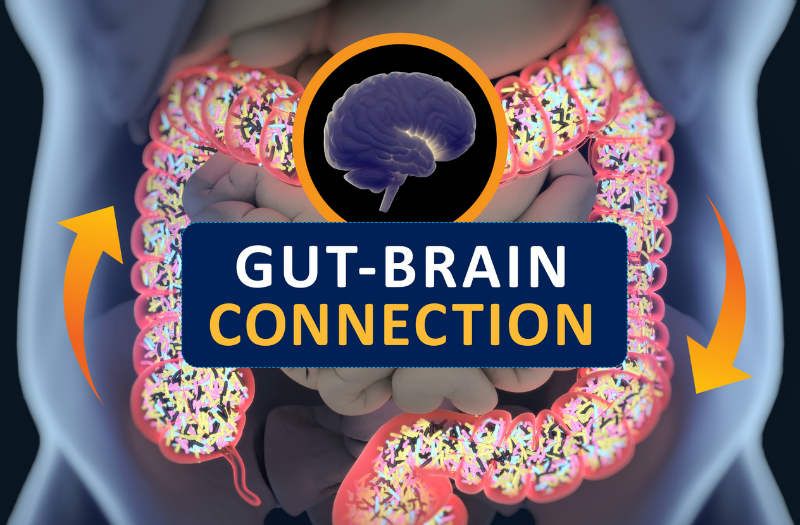The gut-brain connection is something that is continually studied with new findings popping up on a regular basis. The gut-brain connection has been linked to anxiety and stomach problems with each feeding off the other. Have you ever experienced something that was considered gut-wrenching? Have you ever felt sick to your stomach due to worrying about a situation? We have all experienced the gut-brain connection associated with anxiety and stomach issues in some form or fashion. Because the gastrointestinal tract is sensitive to emotion, symptoms of the gut can be triggered by anger, sadness, anxiety, even elation.
Understanding this Connection
The brain has an effect on the intestines and stomach of the body. When you think of eating, juices from the stomach can be released before the food makes its way down. The connection works the opposite way as well with a troubled intestine sending a signal to the brain.
Because of this, any feelings of depression, anxiety or stress can signal the stomach to be upset. It is important to take note of stomach issues to be able to determine if you have a GI disorder or if you have a distressed gut based on emotional issues.
The Anxiety Connection
Because the brain and the gut are closely related, it is no surprise that you may have an upset stomach when you are nervous. You may be stressed and feel stomach pain or nervous about a job interview or presentation which gives you diarrhea. Psychology can combine with physical factors to cause you to have bowel symptoms. There are psychosocial factors that can influence the gut. This leads to movement and contractions within the GI tract and this can make the inflammation worse in the stomach and intestines.
Individuals who have GI disorders will perceive their pain more acutely than others. This is because the brain of these individuals is more responsive to the pain signals of the GI tract. Stress will make the pain seem worse.
Stress and the Gut-Brain Connection
Have you noticed issues with your intestines or stomach such as loose stools, heartburn or abdominal cramps? Are these issues related to stress? Such common symptoms of stress should be discussed with your doctor. With the help of a physician, you can come up with ways to deal with the stress in your life to avoid digestive issues.
There are physical, behavioral and emotional symptoms that coincide with stomach and intestinal issues associated with stress. Physical symptoms can include headaches, weight loss or gain, restlessness, sleep problems or headaches.
Behavioral symptoms can include the grinding of teeth, starting to smoke or smoking more than usual, withdrawing from others, procrastination and difficulty finishing assignments at work. Emotional symptoms can include crying, trouble relaxing, depression, indecisiveness, poor concentration, nervousness and quick temper.
Taking note of such symptoms and talking with your physician can help you to better understand the gut-brain connection and how it is affecting you. If you are over stressed at work, your stomach may be acting up because of it. Learning how to cope better with such stress can cause a decrease in the stomach issues.
Most people associate stomach and intestine issues with something being wrong with the body. They do not understand or have heard of the gut-brain connection. Understanding the connection better will help each individual to determine if their stomach or intestinal issue involves this connection. In most cases, the two are connected, be it from stress, anxiety or other issues.
Speak with your physician today if you feel this applies to you so that you can find relief from stomach issues associated with your individual factors such as anxiety or stress.
Anexity, Stress and the Gut-Brain Connection Research
- Gut microbiota’s effect on mental health: The gut-brain axis
https://www.ncbi.nlm.nih.gov/pmc/articles/PMC5641835/ - The Brain-Gut Connection - John Hopkins University
https://www.hopkinsmedicine.org/health/wellness-and-prevention/the-brain-gut-connection




